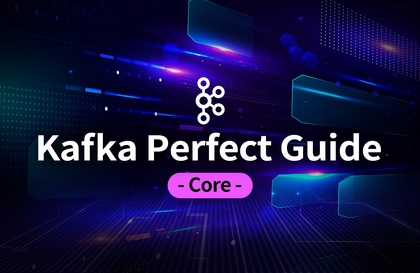
カフカパーフェクトガイド - コア編
dooleyz3525
カフカの核心から内部メカニズムの深化レベルの内容まで、詳細な理論の説明とハンズオン実践&本番カフカアプリケーションの開発実践を通じて、カフカを始める人も一気に専門家レベルに到達できるように講義を構成しました。
Intermediate
Kafka, Data Engineering


Through detailed lectures and hands-on practice on the core elements of SQL, we will provide you with a solid foundation to grow into a SQL analysis expert.
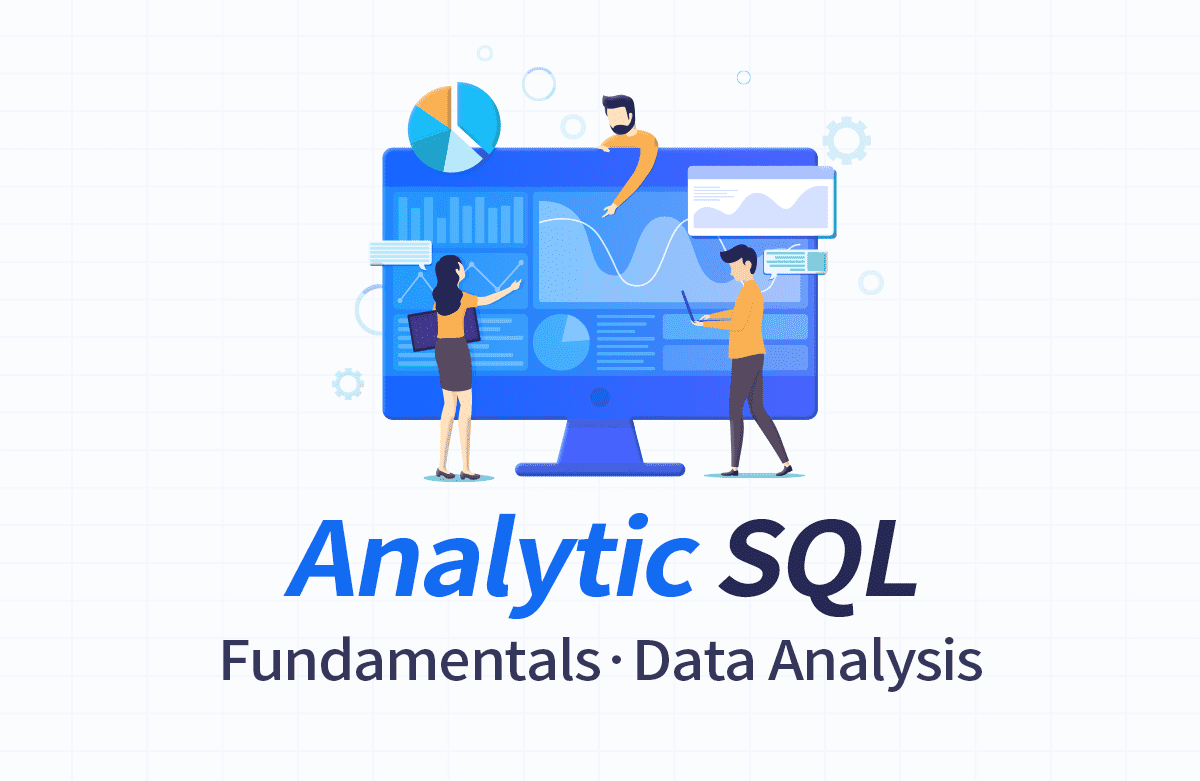
Various types of joins and join operation mechanisms
Understanding Group by and Aggregation Functions and Transformations at the Dataset Level
Date, Timestamp, Interval Handling
Various types of Analytic SQL and how to use them
Various tips to keep in mind when applying Analytic SQL in practice
Understanding Subqueries and Their Various Uses
The first step to becoming a SQL analysis expert! 💪
Build your fundamentals with detailed lectures and practical training.
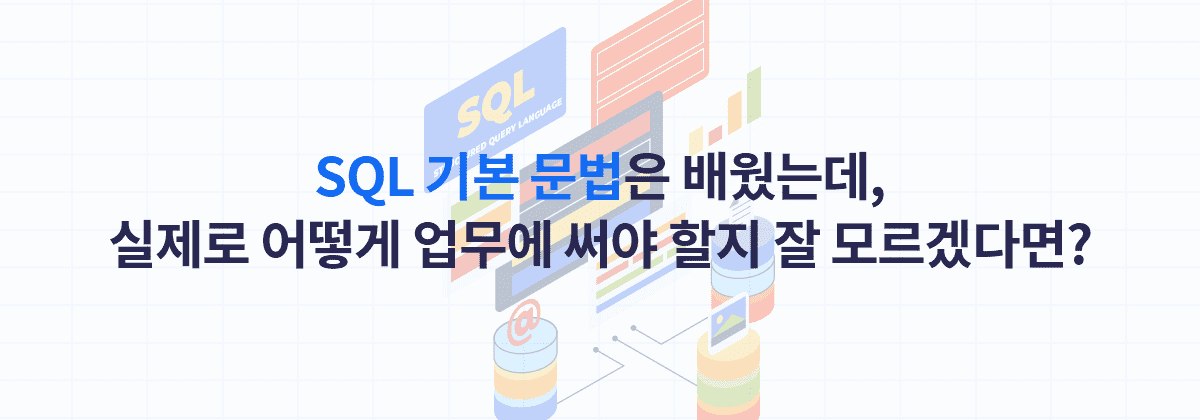
Most corporate data is stored in RDBMS, and SQL is the most basic technology for accessing data. Therefore, the core of corporate data analysis starts with utilizing SQL.
However, it is difficult to find a data analyst who can freely use SQL for corporate data analysis. If you approach SQL only from the grammar and functional aspects when learning it, you will be frustrated when you encounter analysis requirements that include slightly difficult data processing and changes to the set level in real life.

To be good at analytical SQL, you must have the ability to freely process and create original data into the level of the desired set. To do this, you must develop the ability to write SQL while understanding various types of joins, Group by, aggregate functions, and the mechanism by which Analytic SQL works. And you must be able to acquire this through a lot of practice.
Data Analysis SQL Fundamentals is Part 1 of a series of lectures designed to help you grow into a SQL analysis expert. This lecture is structured so that you can acquire the core contents and mechanisms of JOIN, Group by, aggregate functions, and Analytic SQL through detailed lectures and practice.
In Part 2 of the lecture, 'SQL Data Analysis through Various Cases', we will perform various types of sales analysis, order analysis, website access and usage analysis, and website performance analysis using SQL based on Google Analytics-type data sets. We will meet you with a rich set of analysis topics, such as session and DAU/WAU/MAU, traffic source analysis by device/ad channel, landing page analysis, bounce rate and exit rate aggregation, RFM analysis, retention rate, and funnel analysis.
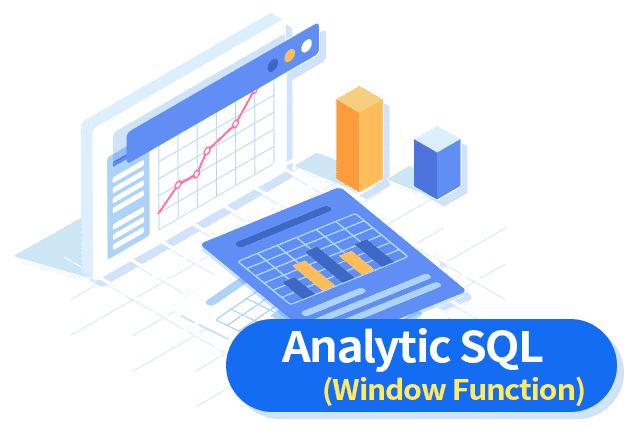
Analytic SQL, also known as Window Function, has played a major role in making SQL the center of corporate data analysis with its convenient and flexible analysis usability and advanced statistical functions. In this lecture, we will explain almost all of the Analytic SQL frequently used in practice .
In particular, we have prepared various visual materials to help you understand Analytic SQL more easily. We will also help you master Analytic SQL through considerations when applying it and various types of practice SQL.
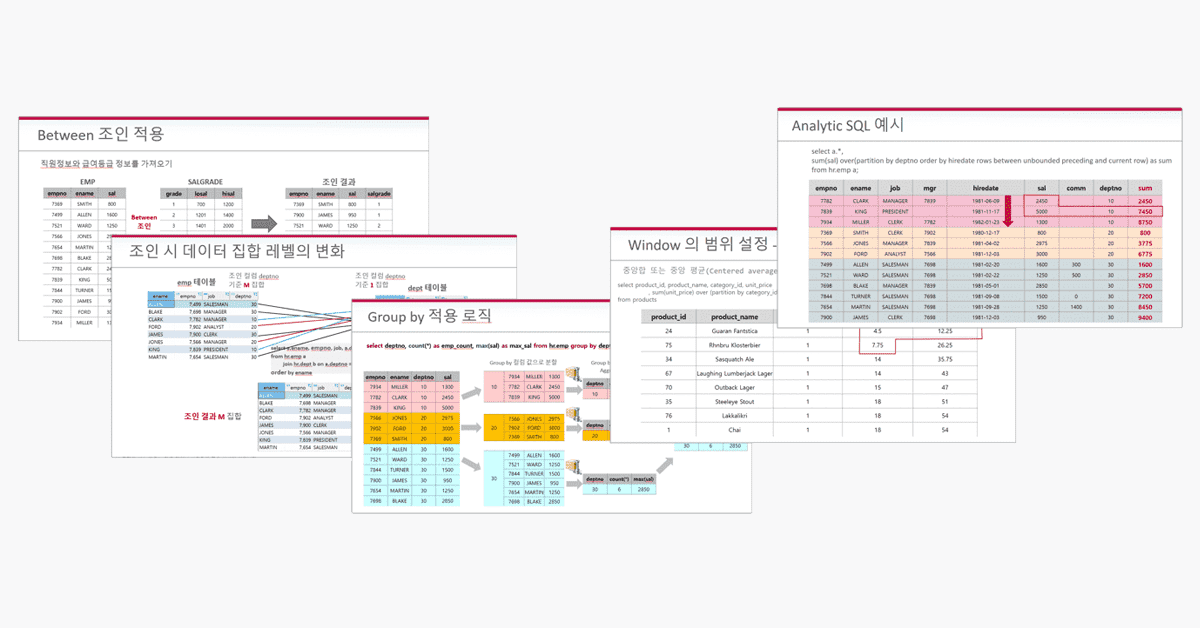
Rich description of core SQL operation mechanisms
We provide a detailed explanation of how different types of joins work, as well as how Group by and Analytic SQL work.

A variety of practice problems combining core understanding and advanced content
The main SQL exercises consist of live coding, and various practice problems are prepared so that you can learn in-depth content while understanding the core.
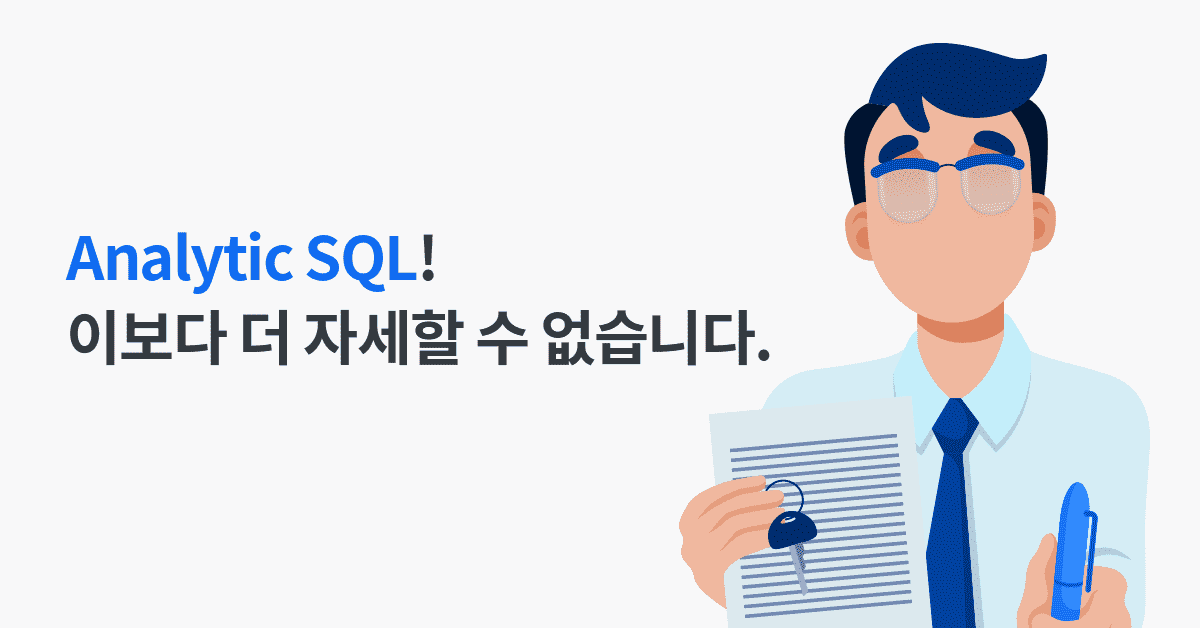
Analytic SQL - I can't explain it in more detail than this
We will explain in detail how the main components of Analytic SQL, Partition, Sort, and Window, work with visual aids. We will also inform you of errors that are easily overlooked when using Analytic SQL and how to resolve them.
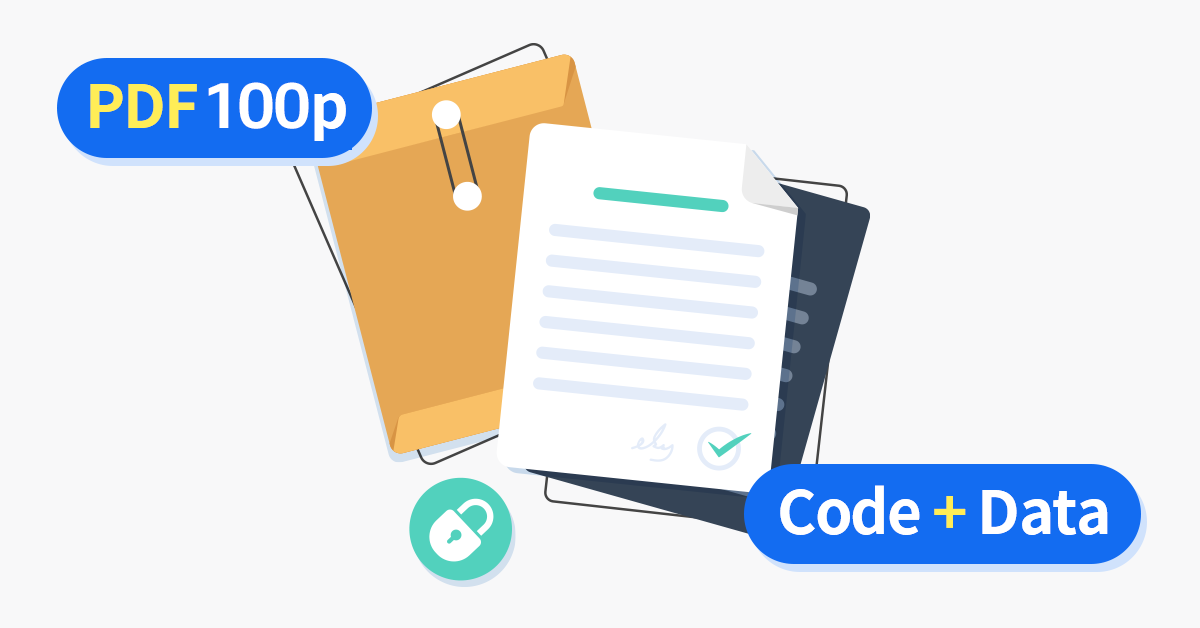
Bonus! 100 pages of lecture material provided
We provide a 100-page lecture textbook, practice SQL code, and datasets so that you can fully understand the content without difficulty even on your own.
PostgreSQL is used as the practice environment DBMS and DBeaver is used as the SQL editor.

PostgreSQL is an open source DBMS that is provided free of charge and has stability, performance, and, above all, rich SQL support functions. It satisfies the Ansi SQL standard and has various SQL functions and analytical functions, so it is widely used not only online but also as an analytical DBMS.
DBeaver Community Edition is free, but it has better features, faster performance, and stability than most commercial SQL Editors. DBeaver supports various DBMSs such as PostgreSQL, MySQL, and Oracle.
📢 Instructions for downloading lecture materials
Q. Can someone who knows nothing about SQL take the course?
This lecture is for those who have a brief basic knowledge of SQL. The lecture proceeds on the assumption that you know about SELECT, WHERE clause, and ORDER BY, so the lecture starts with JOIN. If you are new to SQL, I recommend that you watch a short SQL basic introduction lecture of about 1~2 hours on YouTube or Inflearn. The pre-course knowledge is explained in more detail at about 5 minutes of the lecture introduction video.
Q. Do I need to take this course first to take the "SQL Data Analysis with Various Case Studies" course that will be released later?
Unfortunately, the SQL data analysis course that will be released later, with various cases, assumes that you have some knowledge of the content explained in this course. For prerequisite knowledge for taking the SQL data analysis course with various cases, please refer to the course introduction in Section 0 of the course curriculum and the course selection guide for those who have not taken the Data Analysis SQL Fundamentals course in advance and refer to it when selecting a course.

In the field of data analysis, I have been thinking about how to improve both data analysis skills and SQL utilization skills at the same time for a long time (and that is why I am losing my hair...).
In order to catch these two rabbits, we plan to release two series of lectures that will continuously improve your skills by implementing various types of practical data analysis indicators and various analysis requirements desired in the field using SQL.
Firstly, the 'Data Analysis SQL Fundamentals' course being released this time is designed to help you solidify your SQL capabilities through detailed explanations of the basic mechanisms that make up SQL and various practical exercises.
In particular, we will explain Analytic SQL, the core SQL weapon for data analysis, in detail from A to Z, so you will be able to have solid confidence in Analytic SQL wherever you are.
I created this course so that it can be a valuable time for you to improve your SQL skills. Questions are always welcome and I hope to see you in class.
Well then, I'll quickly disappear to finish the lecture 'SQL Data Analysis with Various Case Studies' that will be released soon.
thank you
Who is this course right for?
Those who want to improve their SQL skills
Those who want to build a solid foundation in analytical SQL
Data Scientists and Data Analysts Using SQL
Data engineers who need to perform data processing/extraction/refinement on SQL-based data to create tables for analysis or marts
If you have learned the basic SQL grammar but still find it difficult to apply SQL to your analysis work
Need to know before starting?
SQL grammar (Select, Where clause, etc.) for beginners
25,055
Students
1,181
Reviews
3,919
Answers
4.9
Rating
13
Courses
(전) 엔코아 컨설팅
(전) 한국 오라클
AI 프리랜서 컨설턴트
파이썬 머신러닝 완벽 가이드 저자
All
76 lectures ∙ (14hr 7min)
Course Materials:
All
132 reviews
4.9
132 reviews
Reviews 81
∙
Average Rating 5.0
Reviews 2
∙
Average Rating 5.0
Reviews 25
∙
Average Rating 5.0
5
単純なSQL文法ではなく、実務に必要なSQL能力を育てる講義です。個人的にSQL実務講義のうち大韓民国ワントップと自信を持って評価します。講義を頑張って漢江の漢江の不気味に感動深く聞きました。私は今後の講義です~~
講義を作ったやりがいを感じさせていただきありがとうございます。
Reviews 1
∙
Average Rating 5.0
Reviews 205
∙
Average Rating 5.0
Check out other courses by the instructor!
Explore other courses in the same field!
$42.90